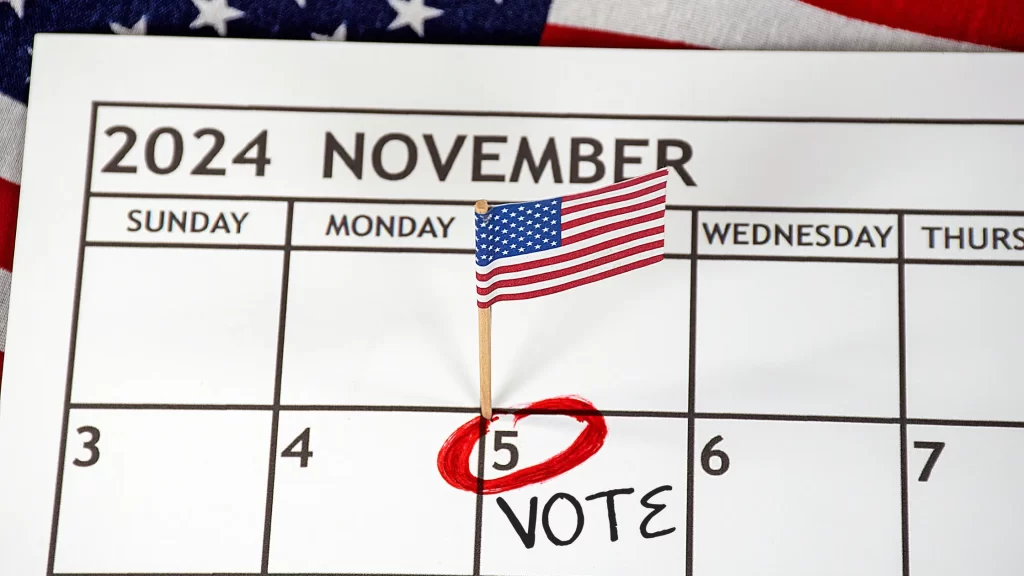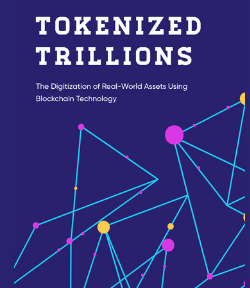
U.S. Elections 2024: How Bitcoin Could React to a Trump or Harris Victory
Bitcoin on the Ballot: How the 2024 U.S. Elections Could Shape Crypto’s Future.
As the 2024 U.S. presidential election heats up, investors around the globe are keeping a close eye on how the results could ripple through financial markets. For those of us in the crypto space, the stakes are even higher. Bitcoin, often viewed as a hedge against traditional financial turbulence, stands at the crossroads of fiscal policy, regulation, and global market sentiment. The question on everyone’s mind: How will a Trump or Harris victory shape the future of digital assets, especially Bitcoin?
Let’s dive into how these two very different candidates could impact the crypto markets, fiscal policy, and ultimately Bitcoin’s place in the global economy.

A History of Politics Driving Markets
First, a bit of context. The intersection of politics, fiscal policy, and market sentiment isn’t new. Every major election brings with it a mix of optimism and uncertainty, and investors act accordingly. Remember the 2008 financial crisis? It wasn’t just a banking meltdown; it was also a turning point that brought Barack Obama into office with a promise of massive economic stimulus. That stimulus reshaped investor behavior and led to one of the longest stock market rallies in history.
Now, fast-forward to 2016. Donald Trump’s unexpected victory initially sent markets tumbling, but they quickly recovered as he introduced tax cuts and deregulation that supercharged U.S. equities. But those gains didn’t come without risks – Trump’s aggressive trade war with China created waves of uncertainty and volatility across global markets. The takeaway? Elections have consequences, and markets react fast, especially in an era where global economies are tightly connected.
For Bitcoin, the stakes are even higher this time around.
Kamala Harris vs. Donald Trump: What’s at Play?
The 2024 race between Vice President Kamala Harris and former President Donald Trump presents two very distinct paths for Bitcoin and the broader financial ecosystem.
Kamala Harris, part of the current administration, offers a vision of continuity, but with a strong focus on regulation. She’s hinted at a more nuanced approach to crypto, recognizing the importance of innovation while emphasizing consumer protection. In theory, her administration could develop clearer rules for the crypto space, which may sound like a good thing for long-term growth. However, let’s not forget the Biden administration’s somewhat antagonistic stance toward crypto markets – think lawsuits, tighter banking regulations, and roadblocks to bipartisan crypto legislation.
For Bitcoin, this regulatory environment could cause short-term turbulence. Markets typically don’t like uncertainty, and tighter rules on exchanges or banking relationships for crypto companies might initially spook investors. If Harris wins, we could see Bitcoin take a hit in the immediate aftermath as the market digests potential future oversight.
That said, Harris isn’t necessarily anti-crypto. In fact, her administration has made moves to understand the space better, which could eventually lead to the kind of regulatory clarity that attracts institutional investors. From a global standpoint, Harris is likely to prioritize international cooperation on crypto regulation, potentially aligning with Europe’s more structured approach. This could create a more predictable, albeit slower, path for Bitcoin’s growth.
On the flip side, we have Donald Trump. His approach to markets has always been aggressive, focused on cutting red tape and pushing for U.S. dominance in whatever sector he sets his sights on. When it comes to Bitcoin, Trump has openly embraced the idea of making the U.S. a global hub for crypto. He’s talked about creating a favorable environment for Bitcoin innovation, which could mean less regulatory scrutiny and more business-friendly policies for crypto companies.
For Bitcoin investors, a Trump win could signal a short-term rally. Deregulation and expansive fiscal policies could lead to a weakened U.S. dollar, which tends to be bullish for Bitcoin. As more people look for alternatives to traditional financial systems, Bitcoin could benefit as both a speculative asset and a hedge against inflation.
However, let’s not overlook the risks. Trump’s previous administration was marked by tariff wars and trade tensions. While this didn’t directly impact Bitcoin, his fiscal policies – especially increased tariffs – could create broader market volatility. And remember, Bitcoin doesn’t operate in a vacuum. If equity markets start to wobble due to trade disruptions or geopolitical tensions, Bitcoin could see some of that spillover.
The Senate: Crypto’s Hidden Battleground
It’s not just about who sits in the Oval Office. The Senate plays a critical role in shaping the regulatory landscape for crypto, and it’s looking increasingly likely that Republicans will take control. Why does that matter? The Senate confirms key regulatory appointments, including those for agencies like the SEC and CFTC. A Republican-controlled Senate is more likely to approve nominees who are favorable to the crypto industry, which could pave the way for less restrictive oversight.
Republican senators have generally been more supportive of the crypto space. If they take control of the Senate, we might see a more open regulatory environment that allows crypto companies to thrive. This would be a net positive for Bitcoin, encouraging innovation and potentially even attracting more institutional investment.
Bitcoin at the Crossroads
It’s easy to get caught up in the U.S. political landscape, but Bitcoin is a global asset. What happens in the U.S. will undoubtedly ripple through international markets. If the U.S. embraces crypto through deregulation or more favorable policies under Trump, other nations may follow suit to stay competitive. A more hostile regulatory stance under Harris, however, could push Bitcoin innovation offshore, with countries like Singapore or Switzerland benefiting as crypto hubs.
Globally, we’re already seeing how Bitcoin is becoming an alternative to traditional currencies in regions facing economic instability. From Argentina to Lebanon, Bitcoin has provided a lifeline where local currencies have crumbled. If the U.S. dollar weakens due to expansive fiscal policies, we could see even more global adoption of Bitcoin as a store of value.
On the flip side, if there is a push for global cooperation on crypto regulation, we might see a more unified international approach to oversight. This could mean more stability in the long term, but it might also slow down the rapid pace of innovation that has defined the crypto market to date.
Short-Term Market Reactions: Trump vs. Harris
Trump Victory:
- Immediate Reaction: Expect a Bitcoin rally. Deregulatory promises and expansive fiscal policies would likely boost investor confidence in the short term.
- Short-Term Reaction: Bitcoin could see continued strength as investors flock to crypto as a hedge against a weakening dollar and inflationary pressures. However, broader market volatility due to potential trade tensions could inject some uncertainty into the equation.
Harris Victory:
- Immediate Reaction: Bitcoin might dip. Markets tend to react negatively to the prospect of increased regulation, especially in emerging sectors like crypto.
- Short-Term Reaction: Once regulatory clarity emerges, Bitcoin could stabilize and even grow as institutional investors gain more confidence in the asset class. The global approach to regulation could bring more legitimacy to Bitcoin, but the pace of innovation may slow down.
A Defining Moment for Bitcoin
As we approach the 2024 election, one thing is clear: the outcome will have far-reaching consequences for Bitcoin and the broader crypto market. Whether it’s Trump’s bullish deregulation or Harris’s cautious regulatory approach, Bitcoin is set to play a central role in the next chapter of financial evolution.
For investors, the key will be to stay informed, keep a close eye on policy developments, and understand that Bitcoin’s future isn’t just tied to U.S. politics – it’s a global asset that reacts to fiscal policy, regulatory changes, and geopolitical events around the world.
So, while the U.S. election will undoubtedly move markets, the true story will be written in how Bitcoin adapts to this evolving landscape. One thing’s for sure: Bitcoin isn’t going anywhere, and its role in the global economy is only getting bigger. Buckle up- it’s going to be an interesting ride.







